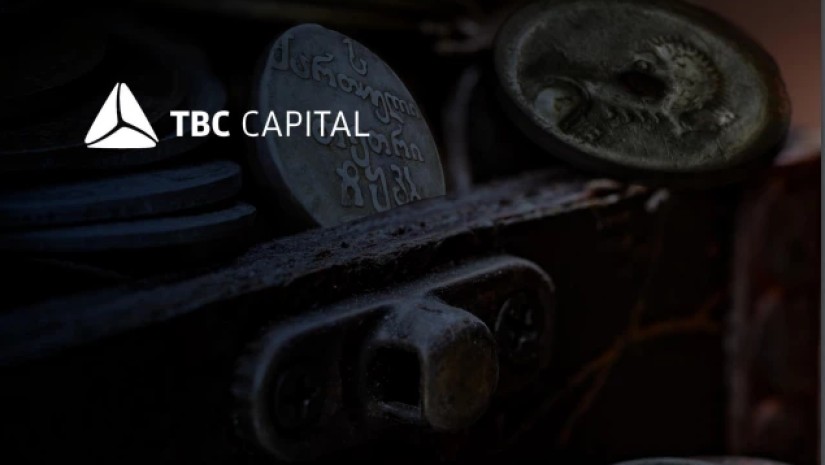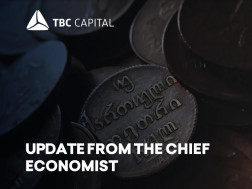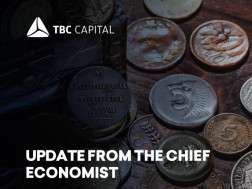TBC Capital’s Chief economist states that with a robust external sector, July economic growth came in at a preliminary 13%, even stronger than implied by TBC Capital’s GDP coincident indicator, non-cash expenses, based on which TNC Capital expects growth in August to remain elevated if lower. TBC Capital tentatively raises their stronger-than-7.4% full year growth forecast to around 9%, with more detailed estimates to come once national accounts and balance of payments data is released later this month. Apart from yet strong annual credit activity coupled with growing non-resident expenditures, TBC Capital notes the contribution of ferro-alloys which has a strong domestic component and was the single main driver of domestic export growth in July. The consolidated budget deficit also increased considerably in July, with non-discretionary interest expenses and social transfers making up the bulk of growth in current expenditures, while especially non-tax revenues declined MoM.
On the inflation side, while powerful growth would imply inflationary pressures, headline annual inflation reached 1% in August, with prices declining by 0.1% MoM, although this was the second consecutive month with the internet fee plunging MoM, by -23.5% this time (-21.6% MoM in July), again a substantial outlier. Overall, TBC Capital estimates that one-off changes in the level of inflation – electricity fee, antibiotics and internet fee – together contributed up to -0.9 percentage points in August annual inflation. According to TBC Capital, while median annual inflation increased for the third consecutive month to 1.4%, underlying measures do not indicate inflationary pressures of note, even though service inflation (without one-offs) remains relatively sticky. Due to this yet another one-off impact on the level of CPI, we adjust the EoP headline inflation outlook to under 2%. With the Fed chair confirming in his most recent speech at 23 August that the Fed rate is set to be cut beginning from September, TBC Capital believes, there will be more room for the NBG to continue easing its monetary stance, with the next meeting to take place on 11 September, albeit TBC Capital expect the rate to remain unchanged due to the dynamics of both domestic and external drivers.
One more point in TBC Capital Chief Economist’s weekly update concerns TBC data showing non-resident expenses accelerating further in August, supporting another strong performance in net inflows. TBC Capital estimates sizable interventions on the USD buying side from the National Bank of Georgia, to be confirmed when data is released later this month, taking advantage of foreign currency inflows to increase buffers. On the other hand, TBC Capital sees signs of the market moving to further price in potential GEL weakening. Turnover on the FX market has risen in the past few months, and so have net foreign currency purchases by households and legal entities. In this regard, TBC Capital particularly notes increased activity in FX forwards, indicating a rising number of market participants looking to lock in the exchange rate. Moreover, according to the investment bank, FX deposit growth has accelerated, resulting in declining deposit larization, as well as the opposite on the credit side to some extent. TBC Capital reiterates that adverse shifts in sentiments, while resulting in concurrent drag, can also be seen as a form of a buffer for good times, if/when sentiments improve, aiding appreciation with the drag reversal. In the meantime, as mentioned, strong FX inflows have enabled the NBG to increase reserves and the GEL to avoid weakening despite these developments. To this point, TBC Capital’s short-run equilibrium GEL estimate slightly strengthened in July compared to the previous month due to favorable external terms, despite domestic aggregates contributing negatively. TBC Capital also notes that the share of non-resident holdings in treasuries increased in August following a four-month decline since April.























